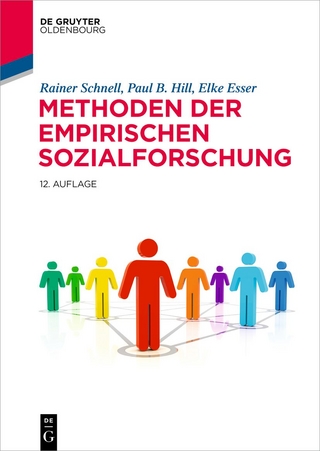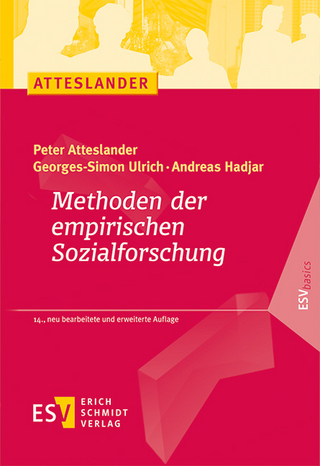
Social Aggregations and Distributional Ethics
Cambridge University Press (Verlag)
978-1-108-92763-5 (ISBN)
This book analyzes the following four distinct, although not dissimilar, areas of social choice theory and welfare economics: nonstrategic choice, Harsanyi's aggregation theorems, distributional ethics and strategic choice. While for aggregation of individual ranking of social states, whether the persons behave strategically or non-strategically, the decision making takes place under complete certainty; in the Harsanyi framework uncertainty has a significant role in the decision making process. Another ingenious characteristic of the book is the discussion of ethical approaches to evaluation of inequality arising from unequal distributions of achievements in the different dimensions of human well-being. Given its wide coverage, combined with newly added materials, end-chapter problems and bibliographical notes, the book will be helpful material for students and researchers interested in this frontline area research. Its lucid exposition, along with non-technical and graphical illustration of the concepts, use of numerical examples, makes the book a useful text.
Satya R. Chakravarty is Professor of Economics at the Indian Statistical Institute, Calcutta. He is a renowned name in the field of studies of Game Theory and Social Choice and has published widely, both books and in reputed journals. He authored 'A Course on Cooperative Game Theory' with Manipushpak Mitra that was published by the Press in 2015. Manipushpak Mitra is Professor of Economics at the Indian Statistical Institute, Calcutta. His research interests are Game Theory, Individual and Collective Choice, Industrial Organization and Mechanism Design. He authored 'A Course on Cooperative Game Theory' with Satya Chakravarty that was published by the Press in 2015. Suresh Mutuswami is Professor of Economics in the School of Business at the University of Leicester. His research interests are Social Choice and Microeconomic Theory.
Preface; 1. Introduction; Bibliography; 2. Individual and social orderings; 2.1. Introduction; 2.2. relations; 2.3. Preference relations and choice sets; 2.4. Social orderings, quasi-orderings and weak quasi-orderings; 2.5. Exercises; 2.6. Bibliographical notes; bibliography; 3. May's theorem; 3.1. Introduction; 3.2. The framework; 3.3. May's theorem; 3.4. Robustness of the axioms; 3.5. Exercises; 3.6. Bibliographical notes; Bibliography; 4. Arrow's theorem with individual preferences; 4.1. Introduction; 4.2. The framework; 4.3. The Arrow Impossibility theorem; 4.4. Two proofs of Arrow's theorem; 4.5. Exercises; 4.6. Bibliographical notes; Bibliography; 5. Relaxing Arrow's axioms; 5.1. Introduction; 5.2. Relaxing Weak Pareto; 5.3. Relaxing transitivity of (Social) binary relations; 5.4. Domain restriction: single peaked preferences; 5.5. Exercises; 5.6. Bibliographical notes; Bibliography; 6. Arrow's theorem with utilities; 6.1. Introduction; 6.2. The framework and assumptions; 6.3. Measurability and comparability; 6.4. Arrow's theorem; 6.5. Positional dictatorships; 6.6. Leximin; 6.7. Utilitarianism; 6.8. Exercises; 6.9. Bibliographical notes; Bibliography; 7. Harsanyi's Social Aggregation theorem; 7.1. Introduction; 7.2. The model; 7.3. Appendix; 7.4. Illustrative examples; 7.5. Exercises; 7.6. Bibliographical notes and discussions; Bibliography; 8. Distributional ethics I; 8.1. Introduction; 8.2. Basics and preliminaries; 8.3. Common features; 8.4. The direct approach; 8.5. The inclusive-measure of well-being approach; 8.6. Direct descriptive inequality indices and reduced form welfare functions; 8.7. Measuring inequality within the Harsanyi framework; 8.8. Comparability between achievement and shortfall inequality: an expository analysis; 8.9. Equality of opportunity: an illustrative discussion; 8.10. Inequality and welfare with an ordinal dimension of well-being; 8.11. Inequality as an ordinal notion; 8.12. Fairness in network resource allocation: an analytical exposition; 8.13. Exercises; 8.14. Bibliographical notes; Bibliography; 9. Distributional ethics II; 9.1. Motivations; 9.2. Basics and preliminaries; 9.3. Common features; 9.4. The direct approach; 9.5. The inclusive-measure of well-being approach; 9.6. Direct descriptive multidimensional inequality indices and reduced form welfare functions; 9.7. Inequality under uncertainty: a brief discussion; 9.8 Exercises; 9.9 Bibliographical notes; Bibliography; 10. Social choice functions; 10.1. Introduction; 10.2. The framework and the Gibbard-Satterthwaite theorem; 10.3. Two proofs of the Gibbard-Satterthwaite theorem; 10.4. Single-peaked preferences; 10.5. Exercises; 10.6. Bibliographical notes; Bibliography; 11. Strategyproofness on quasi-linear domains; 11.1. Introduction; 11.2. The pure public goods problem; 11.3. Allocation of a single indivisible object; 11.4. Relaxing outcome efficiency: Affine maximizers; 11.5. Exercises; 11.6. Bibliographical notes; Bibliography; Index.
| Erscheinungsdatum | 11.05.2023 |
|---|---|
| Zusatzinfo | Worked examples or Exercises |
| Verlagsort | Cambridge |
| Sprache | englisch |
| Maße | 151 x 229 mm |
| Gewicht | 370 g |
| Themenwelt | Sozialwissenschaften ► Soziologie ► Empirische Sozialforschung |
| Wirtschaft ► Volkswirtschaftslehre ► Mikroökonomie | |
| Wirtschaft ► Volkswirtschaftslehre ► Ökonometrie | |
| ISBN-10 | 1-108-92763-7 / 1108927637 |
| ISBN-13 | 978-1-108-92763-5 / 9781108927635 |
| Zustand | Neuware |
| Haben Sie eine Frage zum Produkt? |
aus dem Bereich


